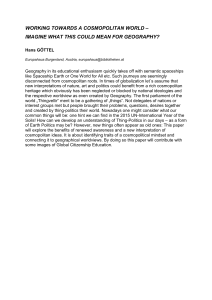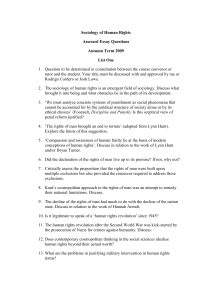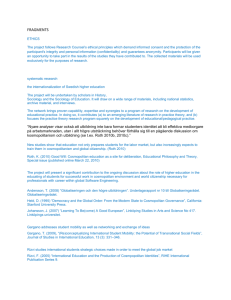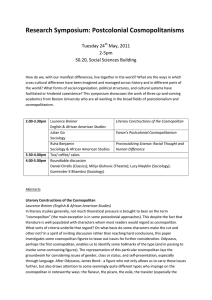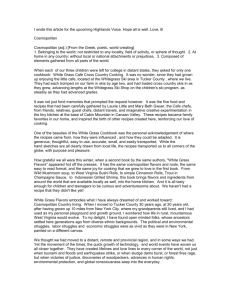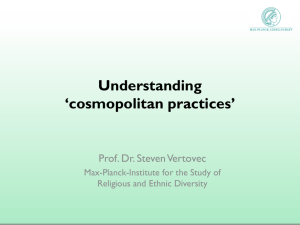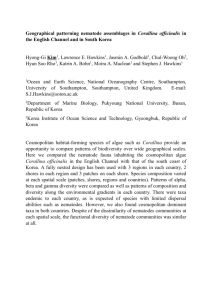Geoffrey Gordon Sociology, international law & cosmopolitanism: Is
advertisement
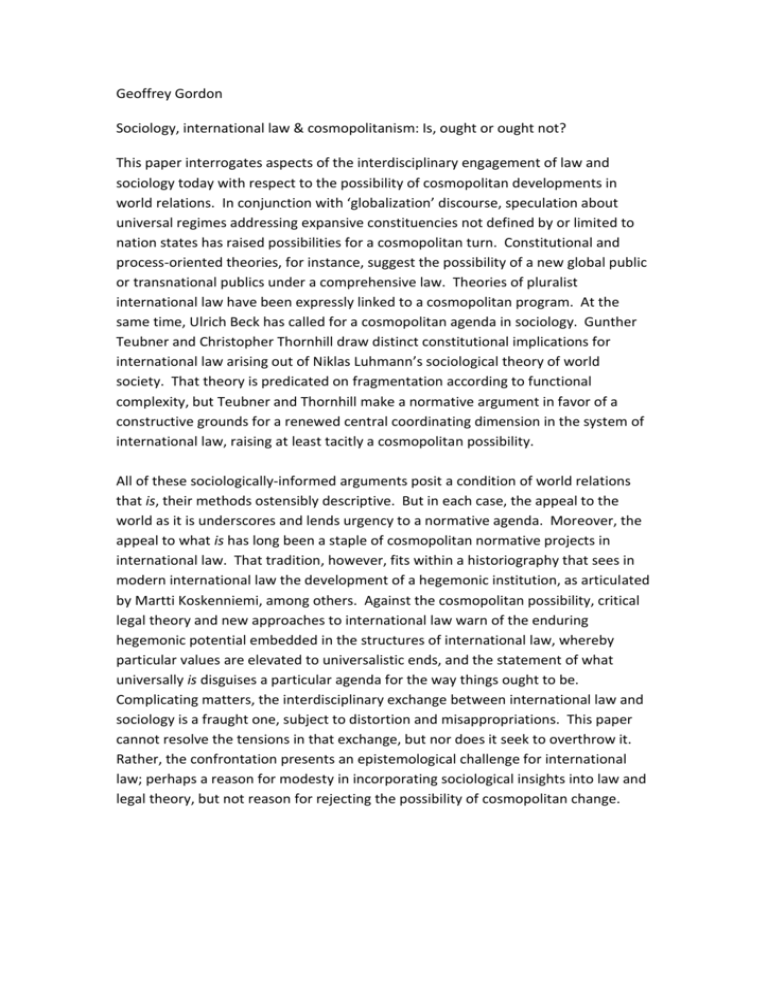
Geoffrey Gordon Sociology, international law & cosmopolitanism: Is, ought or ought not? This paper interrogates aspects of the interdisciplinary engagement of law and sociology today with respect to the possibility of cosmopolitan developments in world relations. In conjunction with ‘globalization’ discourse, speculation about universal regimes addressing expansive constituencies not defined by or limited to nation states has raised possibilities for a cosmopolitan turn. Constitutional and process-oriented theories, for instance, suggest the possibility of a new global public or transnational publics under a comprehensive law. Theories of pluralist international law have been expressly linked to a cosmopolitan program. At the same time, Ulrich Beck has called for a cosmopolitan agenda in sociology. Gunther Teubner and Christopher Thornhill draw distinct constitutional implications for international law arising out of Niklas Luhmann’s sociological theory of world society. That theory is predicated on fragmentation according to functional complexity, but Teubner and Thornhill make a normative argument in favor of a constructive grounds for a renewed central coordinating dimension in the system of international law, raising at least tacitly a cosmopolitan possibility. All of these sociologically-informed arguments posit a condition of world relations that is, their methods ostensibly descriptive. But in each case, the appeal to the world as it is underscores and lends urgency to a normative agenda. Moreover, the appeal to what is has long been a staple of cosmopolitan normative projects in international law. That tradition, however, fits within a historiography that sees in modern international law the development of a hegemonic institution, as articulated by Martti Koskenniemi, among others. Against the cosmopolitan possibility, critical legal theory and new approaches to international law warn of the enduring hegemonic potential embedded in the structures of international law, whereby particular values are elevated to universalistic ends, and the statement of what universally is disguises a particular agenda for the way things ought to be. Complicating matters, the interdisciplinary exchange between international law and sociology is a fraught one, subject to distortion and misappropriations. This paper cannot resolve the tensions in that exchange, but nor does it seek to overthrow it. Rather, the confrontation presents an epistemological challenge for international law; perhaps a reason for modesty in incorporating sociological insights into law and legal theory, but not reason for rejecting the possibility of cosmopolitan change.
